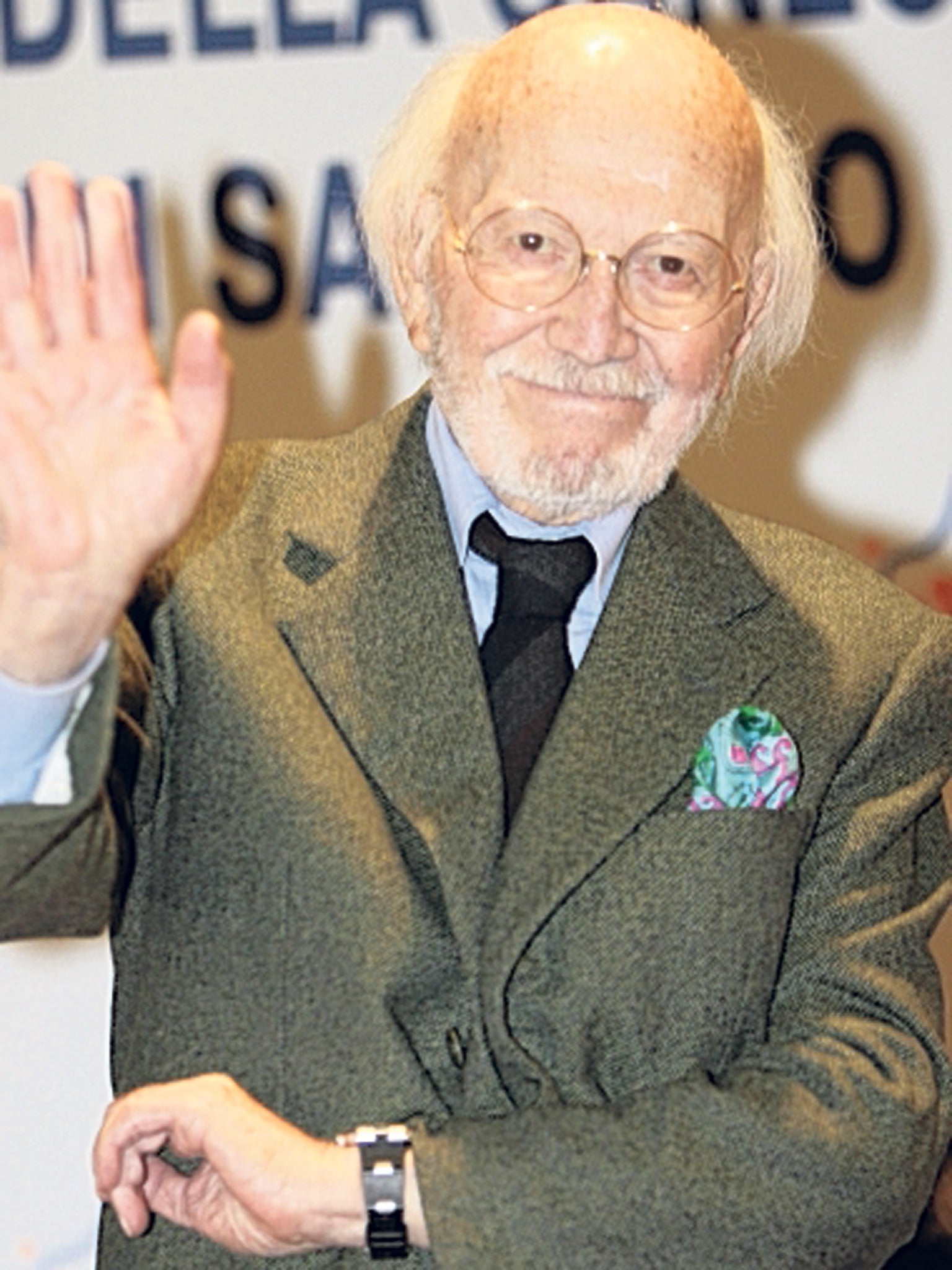Armando Trovajoli: Composer best known for his ode to Rome's romantic magic

Your support helps us to tell the story
From reproductive rights to climate change to Big Tech, The Independent is on the ground when the story is developing. Whether it's investigating the financials of Elon Musk's pro-Trump PAC or producing our latest documentary, 'The A Word', which shines a light on the American women fighting for reproductive rights, we know how important it is to parse out the facts from the messaging.
At such a critical moment in US history, we need reporters on the ground. Your donation allows us to keep sending journalists to speak to both sides of the story.
The Independent is trusted by Americans across the entire political spectrum. And unlike many other quality news outlets, we choose not to lock Americans out of our reporting and analysis with paywalls. We believe quality journalism should be available to everyone, paid for by those who can afford it.
Your support makes all the difference.Armando Trovajoli, who died on 28 February at the age of 95, composed music for around 300 films. It was his lushly orchestrated and playful serenade to Rome, "Roma Nun Fa' La Stupida Stasera", a much-requested romantic stand-by for tourists, that became his most famous song.
Written for the 1962 stage musical Rugantino, Roma Nun Fa' La Stupida Stasera – which translated from the Roman dialect literally means "Rome, don't act silly this evening" – is sung by would-be suitors who beg the city to work its magic so romance might bloom. It was composed as a duet, and was first performed by Nino Manfredi and Lea Massari. It is featured on a recent Andrea Bocelli album of popular favourites, Passione.
He was born in Rome in September 1917, and after graduating from the Accademia Nazionale di Santa Cecilia in Rome he began working with a pop orchestra under the auspices of the Italian broadcaster RAI. In 1952-53 he collaborated with Piero Piccioni on Eclipse, a weekly broadcast in which the orchestra was directed alternately by the two composers. He was also making his way as a pianist, playing jazz and dance music. He appeared with many stars of jazz, including Duke Ellington, Miles Davis, Chet Baker, Louis Armstrong, Stephane Grappelli and Django Reinhardt.
In the 1950s his prolific relationship with the film world took off. He wrote for many of Italy's hit films over the next few decades, especially comedies. In 1951 Dino De Laurentiis gave Trovajoli his first scoring job, on Alberto Lattuada's successful drama Anna. Trovajoli composed two hit songs for Anna, "El negro zumbon" and "Non dimenticar", the latter covered in Italian by Nat King Cole.
He also wrote the music for two of Sophia Loren's most famous films, A Special Day and Two Women, which won her an Oscar. Others included the neo-realist classic Riso Amaro [Bitter Rice] and Marriage Italian Style, another Loren film. In 1957 Loren sang his "Che m'e mparato a ffa," which went to No 1 in Italy.
Among the directors turning to him were some of Italy's best in the decades following the Second World War, including Ettore Scola, Vittorio De Sica – with whom he collaborated on a number of projects, including one segment of Boccaccio '70 – Dino Risi and Luigi Comencini.
In a garlanded career Trovajoli, who was working on a satirical version of Puccini's Tosca when he died, won four David Awards, Italy's principal film honours, among many other prizes. The mayor of Rome, Gianni Alemanno, mourned Trovajoli's passing, saying in a statement that "the voice of Rome has been extinguished".
Join our commenting forum
Join thought-provoking conversations, follow other Independent readers and see their replies
Comments